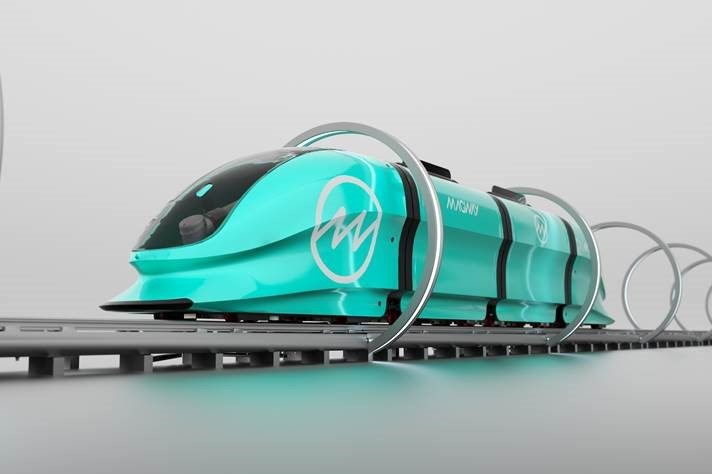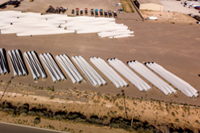NCC proposes natural fiber use for SME subterranean transport network
Under an NCC SME Boost program, research indicates composite reinforcements will reduce material, manufacturing costs and prove more sustainable for innovative SME project.

Photo Credit: NCC
The National Composites Centre (NCC, Bristol, U.K.) has recently proposed the use of biobased flax fibers as a more sustainable, cost-effective reinforcement material for the development of Magway’s (Wembley, U.K.) subterranean tubes as a high-capacity delivery system.
In an attempt to provide a long-term solution to meet increased online shopping during the pandemic and demands for more sustainable transport options, Magway is combining linear motor and control technology to magnetize tracks in order to create a faster, flexible and more resilient underground transport network for the delivery of products to customer fulfillment centers (CFCs).
Previously participating in an NCC Innovation Workshop — which allows SMEs to explore the feasibility of their innovative ideas and products — Magway returned to NCC to take its concept to the next level and to conduct the project through the SME Boost program, which offers match funding up to £25k to small- and medium-sized enterprises in the U.K. to help them develop composites products.
NCC engineers conducted research into the design and cost modeling of each aspect of the product, and an assessment of a range of environmental factors combined with one of various manufacturing processes allowed the creation of product, material and manufacturing process down selection. A detailed life-cycle analysis of the materials currently used, and those being considered as alternatives, was also conducted to ensure that the gains from removing goods traffic from the roads was not undermined by unforeseen factors in the development of this new method of transport.
Results indicate that, in addition to sustainability, the use of natural fiber reinforcement materials have the potential to reduce the overall cost of the pipeline in comparison to high-density polyethylene (HDPE). The materials identified could represent a potential 50% reduction in material costs, and a 70% reduction in manufacturing costs.
“Sustainability is at the heart of Magway, so it was important for us to understand the environmental inputs of the system itself as well as the beneficial outputs,” says Huw Thomas, development director at Magway. “Working with the NCC enabled us to assess the embedded carbon in the HDPE tubes being proposed and offered a comprehensive review of the alternatives. Their report not only showed us how we could save money and reduce our systems carbon footprint, it also offered an opportunity for U.K. manufacturers to take a global lead in creating more sustainable tube materials. We are currently looking at how we can partner to best take the recommendations forward.”
Related Content
-
European SUSPENS project targets green composites production
The 13-partner program will addresses the challenge of reducing the environmental footprint of sandwich and hollow composite structures via bio-sourced resins and carbon fiber precursors.
-
Drawing design cues from nature: Designing for biomimetic composites, Part 1
Biomimicry is an interdisciplinary methodology that can inform composites design and manufacturing via use of more effective and sustainable materials, structural fabrication and technological practices.
-
Grand Largue Composites, Sicomin enable flax fiber-built Class40 racing yacht
Fibers, fabrics, epoxy resins and adhesives from Sicomin helped realize the lightweight, strong and stiff Crosscall yacht, capable of tackling extreme ocean racing conditions.
















